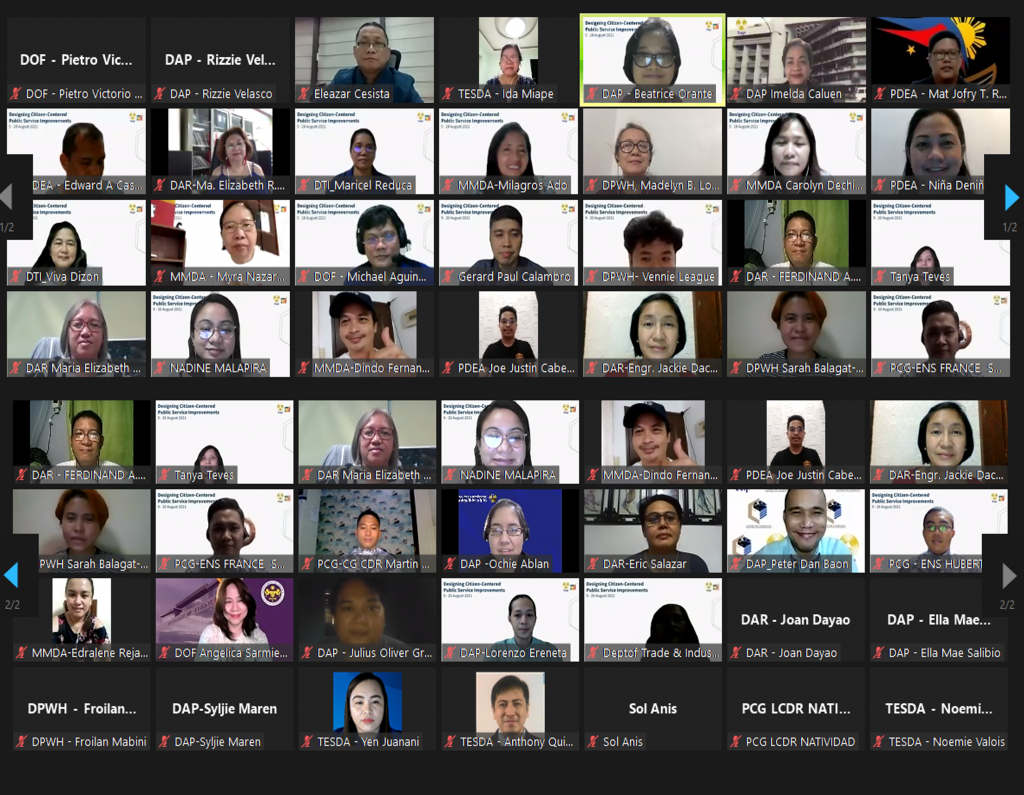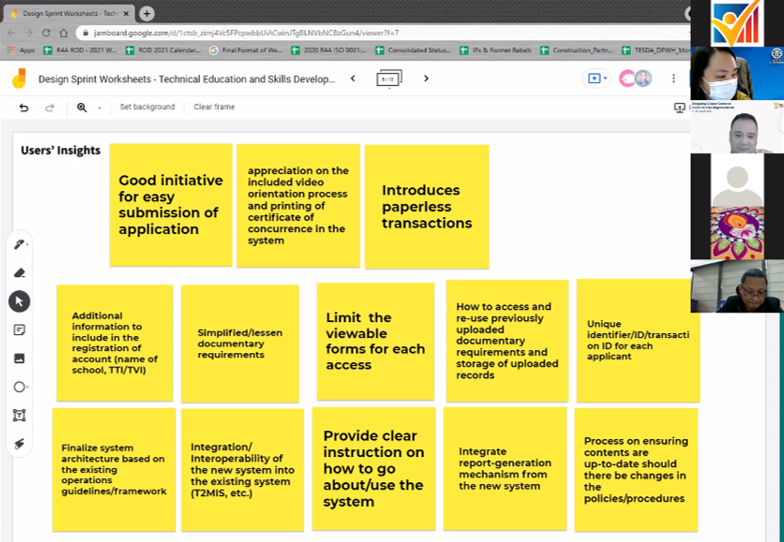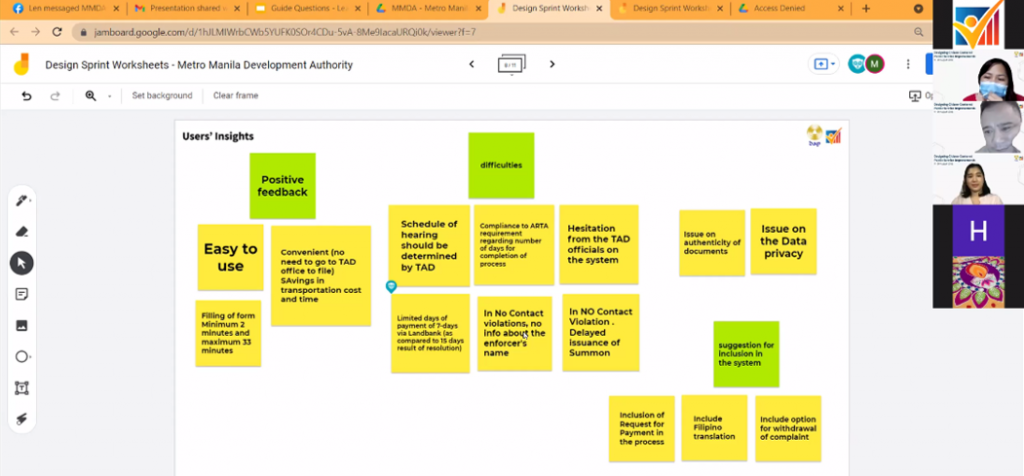Today’s increasing pace of change and unpredictable circumstances have put pressure on the government to adapt to improve productivity and continue providing responsive services to citizens. As part of its mandate to enhance knowledge, skills, techniques, and technology to assist the public sector, the Development Academy of the Philippines (DAP) implemented the Designing Citizen-Centered Public Service Improvements (DCCPSI) Program last August 9 to 20, 2021.
This course assisted national government agencies in identifying issues in their critical services based on their clients’ perspective and creating solutions that meet their clients’ expectations and needs. At the same time, it also trained the participants in developing innovative strategies to improve the services and increase the productivity of their respective agencies.

Staff and officers from the Department of Finance (DOF), Department of Trade and Industry (DTI), Department of Agrarian Reform (DAR), Department of Public Works and Highways (DPWH), Metro Manila Development Authority (MMDA), Technical Education and Skills Development Authority (TESDA), Philippine Drug Enforcement Agency (PDEA), and the Philippine Coast Guard (PCG) participated in the online lectures and workshops via Zoom.
Facilitators from the DAP conducted lectures to introduce new concepts, tools, and strategies from service design and innovation and guided the participants throughout the workshops where they could apply their new knowledge. The participants were also instructed on how to consult their services’ clients and stakeholders to identify pain points and test possible solutions.
Recognizing the client’s perspective
The first phase of the program, the “Introduction to Citizen-Centered Service Design and Data Gathering,” helped the participants better understand their stakeholders’ perspectives. Using the Client Journey Map, they broke down client experience in terms of channels, costs, distance, time, clients’ emotions, and identified pain points experienced when citizens availed of the agencies’ services. They also analyzed the internal processes of their offices to identify delays and unnecessary steps.
Many participants found the new concepts and tools, particularly the client journey map, helpful as they shifted their point-of-view from their organizations to their clients. DOF Dir. Angelica Sarmiento shared that “in the government system, we wisely take into consideration the standpoint of the agency, but we learn that we need to improve the system from the client’s standpoint.”
Designing with clients
The program also allowed the participants to unleash their creativity through brainstorming and prototyping activities. Guided by the DAP facilitators, the teams challenged their assumptions about their service, clients, and environment to generate ideas and synthesize these into possible solutions. Maricel Reduca, Officer-in-Charge of the Bureau of Philippine Standards – Standards Conformity Division, shared her experience in collaborating with her colleagues: “we came from different bureaus, and the good thing about the discussion is that one of the members asks about the process… Also, the data gathering helped us during the brainstorming since we already know the client’s expectations and needs.”
To convert their ideas into tangible solutions and determine if these work in practice, the teams developed prototypes and tested these on their stakeholders. During the user tests, the teams considered feedback and insights to identify improvements as they prepare further iterations of their solutions.

For the participants, the value of learning from clients and engaging them throughout the design process was an important lesson. TESDA Supervising Technical Education and Skills Development Specialist Ida Miape summarized her takeaway, “we journey with our stakeholders, so their input is essential to enhance the service, policies, and guidelines, and we would learn what is missing in our solution.” DPWH Project Evaluation Officer Vennie League also added that “the client’s peace of mind is important.”

Beyond the workshops, the participants gained skills and knowledge which they can continue using when engaging with their clients and colleagues. For Engr. Myra Nazarrea of the MMDA, “applying the service design perspective is not all about applying it to a project. It is also about how you deal with others since there might be a possible solution, and you have to see it from other’s perspective.”
For DOF Dir. Michael Aguinaldo, the workshops were a platform to see the bigger picture of their service. He shared that “the whole experience needs to be imagined. I learned about understanding what the clients would feel. Another thing is about the user tester. We usually finish the prototype first before gathering feedback, and now I can immediately gather feedback and make an adjustment. I will also make sure to review the tools that were introduced during the session for our future projects.”
